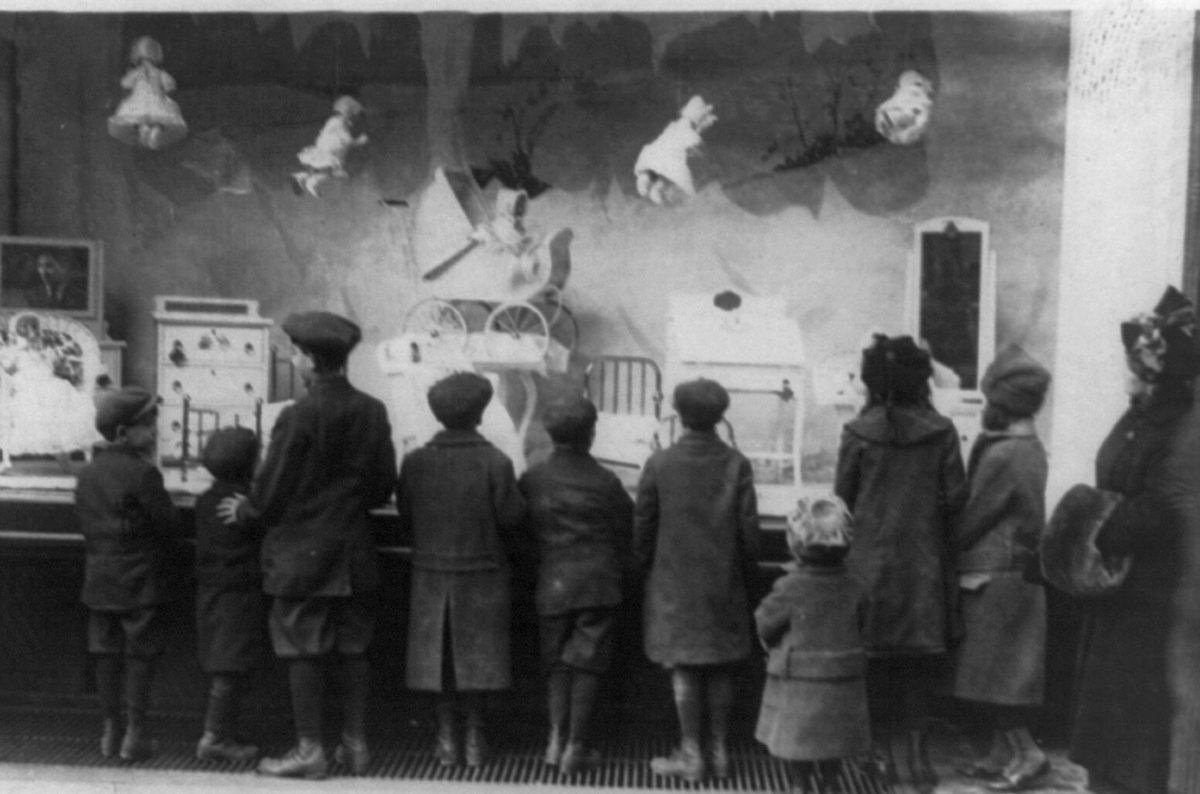
Children looking at a display window at Macy’s, c. 1914. Library of Congress.
• Turning to the Stoics to solve the problems of today: “The first line of Epictetus’ manual of ethical advice, the Enchiridion—‘Some things are in our control and others not’—made me feel that a weight was being lifted off my chest. For Epictetus, the only thing we can totally control, and therefore the only thing we should ever worry about, is our own judgment about what is good. If we desire money, health, sex, or reputation, we will inevitably be unhappy. If we genuinely wish to avoid poverty, sickness, loneliness, and obscurity, we will live in constant anxiety and frustration. Of course, fear and desire are unavoidable. Everyone feels those flashes of dread or anticipation. Being a Stoic means interrogating those flashes: asking whether they apply to things outside your control and, if they do, being ready with the reaction ‘Then it’s none of my concern.’” (The New Yorker)
• Why are all the most helpful robots women? (Real Life)
• Examining the Shakespeare economy: “Shakespeare is an exemplar both of the influence of individual economic circumstances on processes of literary production, and of the effect of the wider economic context on the content and impact of literary works. At a personal level, his career illustrates clearly the ways in which the market for a writer’s output affects the quantity and nature of the work produced. Perhaps the image of a great artist as a genius oblivious to the financial realities of everyday life persists in the popular imagination, but Shakespeare was far from such a case. He lived at a time when the theatre was becoming more professionalized and there was a growing market for plays. The theatre industry in London was marked by competition between production companies whose business models, in present-day management speak, were attuned to the opportunities of the marketplace. Shakespeare rode the wave with skill and determination such that at his death in 1616 he was both the most famous and most financially successful playwright of his time.” (The Times Literary Supplement)
• Four hundred years of Christopher Marlowe’s The Tragical History of the Life and Death of Doctor Faustus. (The Paris Review Daily)
• In the 1910s a group of New York City women said “no” to gifting: “‘Are you a giver of Christmas gifts?’ The New York Times reported on November 12, 1912. ‘If you are, do you give them in the true spirit of generosity or in the hope that you may get presents or favors in return? If that is the way you have been offering holiday remembrances, and if you wish to rebel against this hypocrisy, then you are eligible for membership in the Spug Club.’” (Atlas Obscura)
• Almost the same as shopping: historic photos of department stores. (Curbed)